
Having a new baby can be an exciting time, but it can also bring new stressful demands. Parents quickly find that infants have their own personalities and start exploring the world around them at a very young age. It is important to make your home and your baby’s environment safe and nurturing from the beginning. … Continue reading “Parenting”
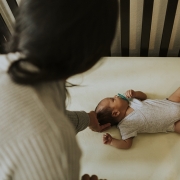
A pacifier may help to satisfy the need of sucking infants beyond their need to eat. The use of a pacifier at nap time and bedtime may lower the risk of SIDS (Sudden Infant Death Syndrome). Never put a pacifier on a cord around an infant’s neck, wrist or crib as this may cause accidental … Continue reading “Pacifiers”
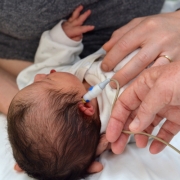
Your baby will be screened for hearing loss before going home. Hearing is important for developing language and communication skills. Your baby may not pass the first hearing screen. If this is the case, you will be given instructions, including repeating the test within two to three weeks of going home. It is important to … Continue reading “Newborn Hearing Screening”

Infants who are placed frequently in the same sleeping position during the first six months of life develop flattening of the side which lies against the sleeping surface. Infants need to be given frequent opportunities to be placed on their stomachs while awake. Encourage infants to move their heads in all directions to stimulate appropriate … Continue reading “Misshapen Heads”
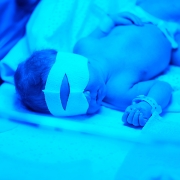
Jaundice is a common condition that causes your baby’s skin to turn yellow. It normally develops on their face and in their eyes on day 2-3 of life. All babies are tested for jaundice prior to leaving the newborn nursery. Normally, jaundice peaks on day 4-5 of life and resolves within a few weeks. Jaundice … Continue reading “Jaundice”

You’ve planned and anticipated your baby’s arrival for months, and birth may be different than you expected. What matters most is that your baby finally arrives and is healthy. Take time to consider your preferences for your baby’s birth and care following birth. Keep track of your preferences so you can let your healthcare providers … Continue reading “Hospital—Preparing for Birth”
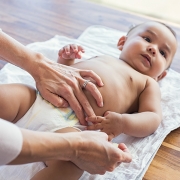
Boys For baby boys who are not circumcised, care of the genital region involves routine bathing. Do not push the foreskin back to clean the penis. Circumcision is an elective procedure that has some benefits and few risks. If you choose to circumcise your baby, your doctor will discuss the procedure with you as well … Continue reading “Genital Region”

All formulas provide the same basic complete nutrition, but small differences do exist among formulas that make each one unique. Your baby may tolerate any formula, or she may do better with one particular formula. Be sure to follow the formula’s mixing instructions exactly. Talk to your doctor if your baby is struggling with her … Continue reading “Formula”
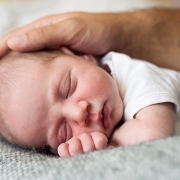
You will notice 2 areas on your baby’s head that seem to be lacking bony protection. These soft spots, referred to as fontanelles (anterior for the larger one in the front, posterior for the smaller and typically less noticeable one in the back), are normal gaps in a newborn’s skull that will allow your baby’s … Continue reading “Fontanelle (Soft Spot)”

During the first month your baby will grow rapidly—about 5 to 7 ounces per week, or a pound of weight gain every 2-3 weeks. Normal newborn skin looks “leathery” or dry and will soon peel with very soft skin underneath, requiring no treatment. Newborns also have very fine hair covering their shoulders, back and other … Continue reading “First Month: Physical Appearance & Growth”